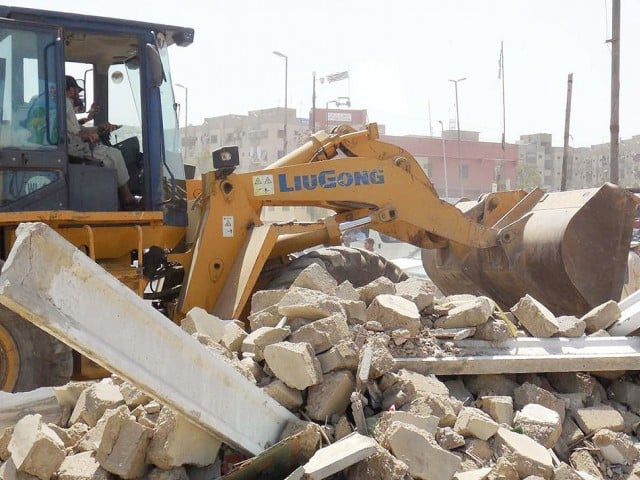In Hyderabad: Court invalidates orders allowing encroachment on footpaths
'Municipal authorities do not enjoy unfettered, unbridled privilege to allow individuals to occupy public places'

"By no stretch of the imagination can it be presumed that the law would vest power in the local authority of the government to precede such a resolution," observed civil judge Abdul Haseeb Abro in his order on Saturday.
The five feet by five feet cabins, made of iron, were built in Latifabad in 2006 near a government hospital. Dozens of cabins are still continuing their businesses despite attempts of the taluka administration for their demolition.
The controversy first reached the court in 2011 when Muhammad Ali, a resident of Latifabad Unit 12, filed a case against the taluka municipal administration of Latifabad and others. He claimed that he had signed an agreement for the construction of a cabin shop and handover of its possession but the administration did not honour the agreement.
Later, the plaintiff reached a compromise with the government and other respondents and they submitted a council resolution which allowed construction of cabin shops on the footpath. Subsequently, the local court also issued a decree, allowing the use of a public space for pedestrians to a private business.
Sindh CM wants more constables, less encroachments around shrines
However, in 2014 a former councilor, Ghulam Sarwar Qureshi, filed a petition in Sindh High Court (SHC) which challenged both the subordinate court's decree and the council's resolution. On October 4 this year, the SHC, while observing that though the time lapse did not allow challenging the 2011 order in public interest, the petitioner can file a review in the same subordinate court.
"No doubt if pedestrians' way or footpath was utilised for construction of cabins, this should not have been part of lawful compromise between the parties. These municipal authorities do not enjoy an unfettered and unbridled privilege to allow individuals to occupy public places such as footpaths," the SHC wrote in the order.
Abro noted that the taluka administration, through the assistant commissioner, tried to demolish these cabins but failed due to resistance. "... the decree cannot be challenged directly by filing a writ petition. However, in this case, the decree was obtained under collusion, fraud and misrepresentation," the judge wrote.
Done and dusted: Half of Karachi-Hyderabad motorway complete
He added that such a decree can be challenged under Section 12 (2) of the Civil Procedure Code (CPC). The judge cited the PLD 2017 Mazher Ali Magsi versus province of Sindh, in which the SHC wrote that "public property could not be leased to any private or third party".
"The government and relevant municipal authorities are duty bound to keep public property free from all types of encroachments," the referred order further noted.
Judge Abro's order, which declared the cabins as encroachment and nullified the court's decree, is likely to provide a legal cover to the district administration in its hitherto anti-encroachment operations in that locality.



















COMMENTS
Comments are moderated and generally will be posted if they are on-topic and not abusive.
For more information, please see our Comments FAQ